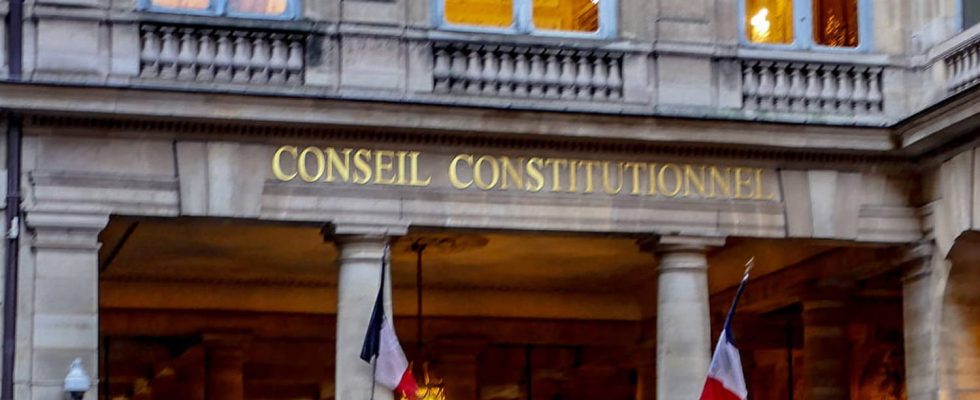The Wise Men delivered their verdict this Thursday on the immigration law. And more than 30 articles have been revised, the law has been profoundly changed.
The Constitutional Council has decided to widely review the content of the immigration bill. Of the 86 articles contained in the text, the nine Sages censored 35, including 32 deemed unrelated to the subject of immigration, this Thursday, January 25. Among the provisions challenged, those relating to the tightening of access to social assistance, family reunification, the establishment of migration quotas by Parliament, the restriction of land rights or even the establishment of a “return deposit” for foreign students.
Many of the censored provisions are additions or tightenings obtained or imposed by the right during the adoption of the text in the Senate. The Republicans were also awaiting the decision of the Constitutional Council with interest, but the verdict is not to their liking. “The Constitutional Council censored the Immigration law. They judged in politics rather than in law. This censorship was expected by Emmanuel Macron and the left” regretted Eric Ciotti on X judging that a “constitutional reform appears more essential than ever to safeguard the destiny of France”.
The decision castigated by the right, welcomed by the majority
Disappointment also for the National Rally which had hailed an “ideological victory” with the adoption of the bill. Jordan Bardella, president of the far-right party, denounced a “coup of force by the judges with the support of the President of the Republic himself”. He is not asking for constitutional reform, but a “referendum on immigration”.
Unlike LR and RN, the Minister of the Interior at the origin of the bill, Gérald Darmanin, welcomes the decision of the Constitutional Council which “validates the entire government text”. “Never has a text provided so many means for expelling delinquents and so many requirements for the integration of foreigners,” he said on X (formerly Twitter), taking note of the “censorship of many articles added to Parliament”. The presidential camp hoped as much as the left, if not more, that the Sages would reverse the right-wing measures that had hardened the initial text during its examination.
Four major measures particularly scrutinized
Among the provisions which raised questions, these four major measures pointed out in particular by Humanity. First: migration quotas. In the event of promulgation of the immigration law, this measure would require Parliament to vote for three years on the number of foreigners who would have the right to settle in France, with a significant risk of a breakdown in equality. Thus, with equivalent files, certain foreigners could be sent back simply because the quota threshold has been reached.
Another measure: the hardening of the law of the soil. While until now this right was automatic, its recognition should be requested between the ages of 16 and 18. This provision could be seen as a legislative rider, the measure being more about nationality reform than immigration. Let us note in passing that no less than 27 measures are considered legislative riders, and therefore which a priori have nothing to do with the immigration law, recalls the HuffPost. Among them, mastery of French by the spouse or those who require “sufficiently stable and continuous relationships” (family reunification).
Third major measure, the tightening of family reunification. The measure provides that the applicant can claim family reunification from a duration of stay in France of 24 months and no longer 18, and on condition of having “stable, regular and sufficient” resources, among other things. The Constitutional Council could choose to revoke it, judging that it is contrary to the fundamental principles which protect family life.
Finally, a particularly sensitive measure requiring attention is that concerning social benefits. With the immigration law as it was voted by the joint joint committee, a foreigner in a regular situation and without employment could not receive social benefits (APL, family allowances, etc.) before being able to prove at least five years of presence on the territory. The period would be halved (2.5 years) for working foreigners. The Sages could this time invoke the card of “break of equality” or “national preference”, which would then pose a problem since France must, according to its Constitution, ensure equality between its citizens. before the law, without distinction of origin, religion or race.
